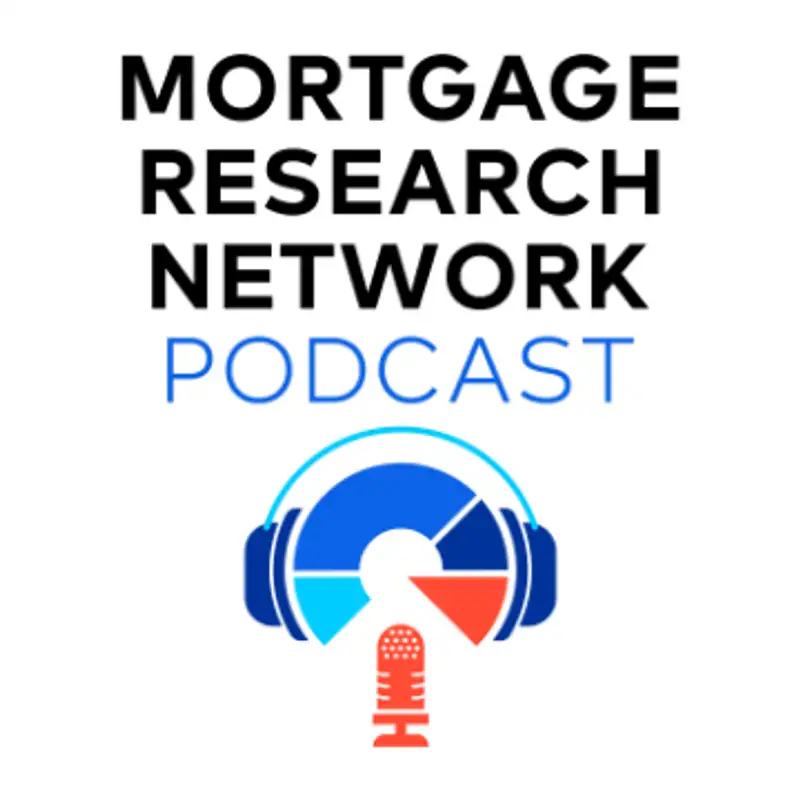No Tax on Home Sales Act: Ending the Capital Gains Trap
Welcome to the Mortgage Research Network Podcast. Just a note that this podcast audio is AI-generated, but the article on which it's based was produced by people. Content is also reviewed for accuracy. And your hosts, Tim and Craig, are real people. Without further ado, let's get into today's topic.
I'm your host, Tim Lucas, editor of MortgageResearch.com and a former mortgage professional, and with me is Craig Berry, a mortgage originator with 25 years experience.
Hi everyone. Thanks for having me, Tim.
Today we're talking about a relatively obscure but potentially large tax when selling your home. It's the federal capital gains tax on primary residence home sales. Right now, if you're single and your home increases in value by more than $250,000, you're paying taxes on that gain. For married couples filing jointly, that threshold is $500,000. In other words, if your home value rises by more than $250,000 since you purchased, you could be liable for a large tax bill when you sell.
That seems like a pretty big disincentive to sell your home if your home value has risen dramatically. That's gotta be limiting housing inventory.
That's one reason a new bill was introduced by Georgia Congresswoman Marjorie Taylor Green. It's called the No Tax on Home Sales Act and it would eliminate capital gains tax on the sale of a primary residence.
That's great for the lucky ones who are homeowners and have a ton of equity. But what about for first time homebuyers?
Representative Greene argues that this bill would help more than just homeowners. She says it will increase housing inventory, giving new buyers a chance to break into the market.
Up to $500,000 in home value gains seems like quite a generous exclusion. How many homeowners would actually pay this tax if they sold?
Actually, quite a few in many states. In Hawaii, 79% of homeowners would face the tax. In Washington State, 64%, and Massachusetts, 62% according to Realtor.com.
I did read that there are income exclusions. Those making up to about $47,000 if single and $94,000 filing jointly aren't subject to the tax. But what happens to people making more than those thresholds?
Well, that's where it gets complex. If you're making less than about $292,000 for single filers or $584,000 for married filing jointly, you're looking at a 15% rate. To put that into perspective, let's say your home appreciates $200,000 above the exclusion limit. 15% of that would be $30,000 in tax for selling your house in addition to Realtor fees and other costs. But the tax rate jumps to 20% for higher earners.
That's EXACTLY why some people feel trapped in their homes, isn't it?
Yes, and here's a made-up example of how this might play out, though it probably happens more than we realize. A retired couple bought their home in the 1970s for $45,000. Today it's worth about $1.2 million. They want to downsize to be closer to their grandchildren. But they would incur a tax bill of nearly $100,000. The tax implications would eat up a huge chunk of their retirement savings.
Well that raises an interesting question about whether our current system is actually creating unintended consequences for housing mobility.
Right. It's not hard to imagine that homeowners in high-appreciation areas have delayed selling because of tax considerations. Think about what that means for housing inventory, especially in markets where we desperately need more supply.
So why not just update the exemption thresholds for inflation?
That's actually a really thoughtful alternative that some economists have proposed. Those current thresholds of $250,000 and $500,000 were set back in 1997. If we'd indexed them to home values, they'd be around $435,000 and $875,000 today, looking at home price data from the Census Bureau and the department of housing and urban development. The bill suggests that removing this tax entirely could lead to more housing inventory coming to market, which might help with our current affordability crisis.
Though I imagine critics would say this primarily benefits wealthy homeowners.
Exactly, and it ties into bigger questions about wealth inequality and generational equity. Consider this: many Baby Boomers bought homes when prices were much lower and have seen enormous appreciation, while many millennials can't even enter the housing market. The question becomes: should we be making it easier for people to realize huge gains tax-free, or should we be focusing on making housing more accessible to new buyers?
Looking at the political landscape, what are the actual chances of this bill passing?
Well, given the current climate, it's anyone's guess. But what's valuable about this proposal is how it's forcing us to have important conversations about housing policy, tax fairness, and intergenerational wealth transfer. These are crucial discussions we need to have as a society, especially as housing costs continue to rise in many areas.
That's a great point about the broader implications. Sometimes proposals like this matter more for the discussions they spark than their chances of becoming law.
And you know what's really striking? This whole debate highlights how our housing market has evolved from being about simply providing homes to becoming this complex intersection of retirement planning, tax policy, mobility, and economic opportunity. The solutions aren't simple, but the conversations are absolutely necessary.
That's about all the time we have for this topic, but we go into even more detail on the site. To learn more, go to Mortgage research.com and type capital gains tax in the search bar at the top of the homepage. We'll see you next time on the Mortgage Research Network Podcast.
